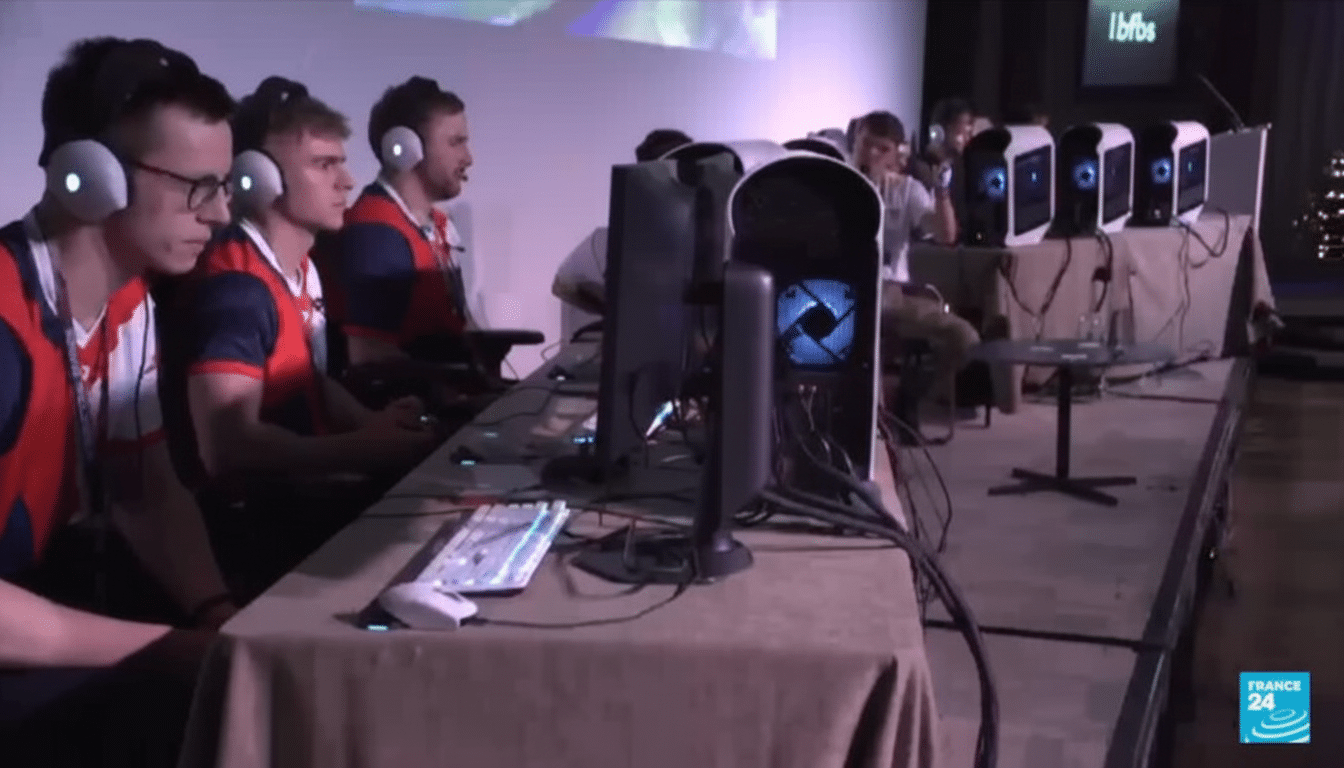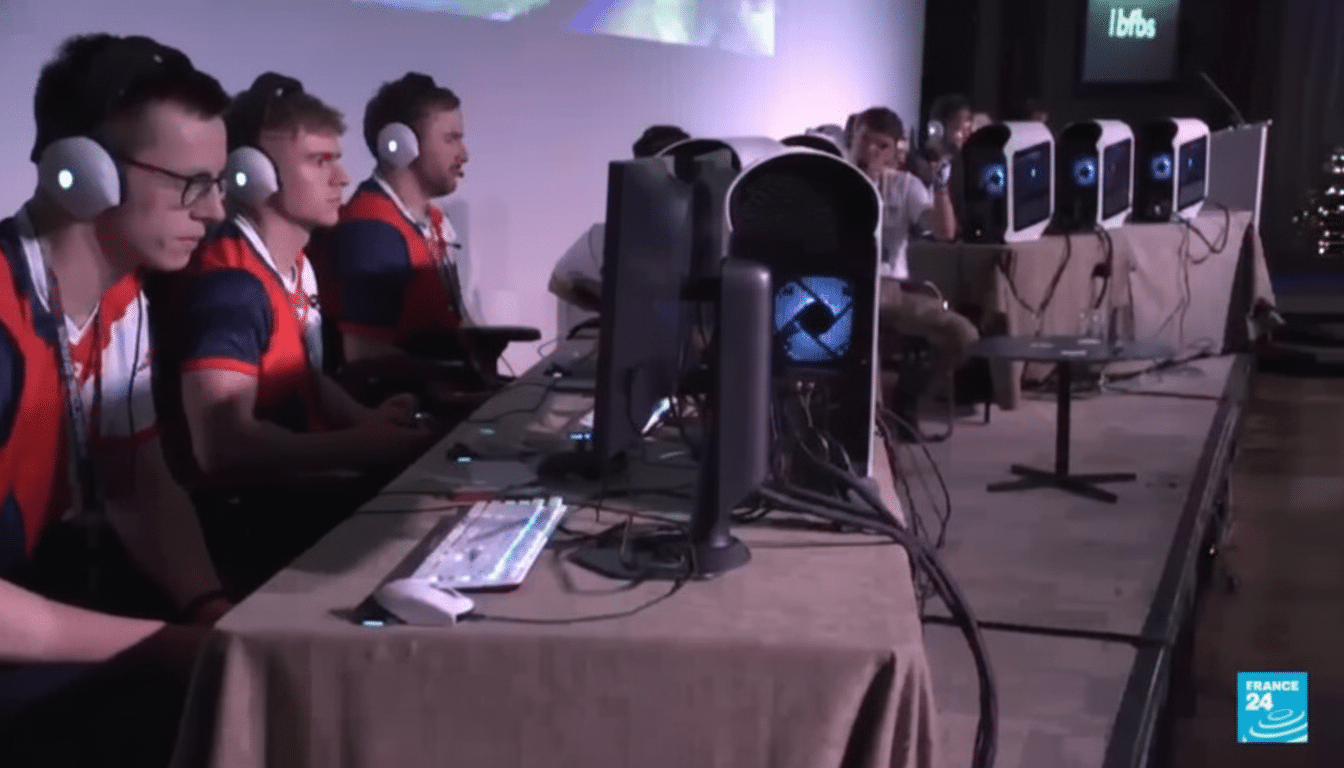The UK is to host the International Defence Esports Games – for serving military personnel with a focus on developing skills in cyber readiness, human–machine teaming and decision-making that are key to modern warfare. Set for Sunderland, in collaboration with over 40 allied nations, the competition will employ an esports framework to see how quickly, accurately and efficiently teams can work together under pressure.
Why Esports Works for the Modern Battlefield
Today’s operations are more data-driven and time-compressed, whether it’s in countering cyber intrusions or coordinating drone swarms. Esports offers a low-stakes way to practise those dynamics. Studies at the University of Rochester, as well as other research labs, show that action video game players have faster decision-making abilities and stronger visual attention without sacrificing accuracy, a skill highly valued in fields like electronic warfare, air defence monitoring and unmanned systems teleoperation.

Interest in skills gleaned from gaming has been accelerated by conflict, especially “real-world” combat. The extensive use of cheap drones and game-like simulators in Ukraine has echoed weapons innovations from past conflicts that had lasting effects long after fighting ceased, including the introduction of tanks and assault rifles. NATO’s Cooperative Cyber Defence Centre of Excellence also frequently conducts exercises — such as Locked Shields, for instance — to tell us how the gamified scenarios are enhancing cross-border defence coordination with live-fire cyber ranges.
Inside the International Defence Esports Games
Based in Sunderland, the site of the National Esports Performance Campus, the competition is set to combine mainstream esports games with bespoke cyber challenges and command-and-control exercises designed to test contestants on communication skills, pattern recognition and quick triage. British organisers are collaborating with similar teams of allies, including those from Canada and Poland, to shape formats that resemble what they call real operational tasks: distributed decision-making; the sharing of information; mission rehearsals under load on cognition.
Tri-service esports teams in the British Army, Royal Navy and RAF are to become integral as part of the MoD’s wider move into synthetic training. Advocates for Persistent Virtual Training — whether or not the likes of Synthetic Single Environment in the UK and Defence Digital will win new budget for persistent virtual world training environments — have kept arguing throughout 2020 that it costs less, you can iterate more scenarios more quickly, and you can put staff through more complex problem sets than live exercises alone.
Training value and tangible outcomes from esports
What differentiates a showcase from training is telemetry. Organisers hope to measure the right metrics — such as latency between receiving a signal and taking action, how often errors occur, resilience to failure and communication efficiency of the team — then use the results for after-action reviews. This reflects practices employed in UK exercises like Defence Cyber Marvel, where teams are challenged with capture-the-flag activities and incident response scenarios to create muscle memory for when real attacks occur.
The Defence Collective Training partners will include the Defence Academy’s Defence Cyber School and the National Cyber Security Centre, ensuring that gameplay is true to established tradecraft and practices. The NCSC is accustomed to handling hundreds of incidents annually, and its guidance places ever-greater emphasis on rehearsals, playbooks and fast cooperation — exactly the skills an esports model can galvanise.

A pipeline of digital talent for defence roles
More than just training, the Games are a recruiting and retention play for a military looking for software engineers, threat hunters and unmanned systems operators.
Government surveys have highlighted a long-term cyber skills shortage in the UK economy. Harnessing esports — whose worldwide audience has now surpassed 500 million, according to Newzoo — creates a pipe to candidates who already succeed in competitive, tech-driven environments.
This is in line with larger industry trends. US and European forces increasingly turn to VR, AR and serious games to speed up learning across the board, from pilot training to logistics. The UK’s gamble is that a public, allied competition will highlight capacity and also popularise the concept that high-stakes teamwork in virtual arenas correlates with mission performance in the real world.
Safeguards and ethics in military gaming initiatives
Militarising gaming raises issues of well-being and ethics around recruitment and data privacy. Organisers say the event will be for active-duty personnel with strict welfare policies and oversight over data collection. Matching the tasks to professional standards — and distinguishing entertainment from training exercise results — will be crucial in keeping out unintended incentives while still maintaining competitive fire.
What to watch next as defence esports programmes expand
If the International Defence Esports Games prove successful, you can also look forward to stronger integration with cyber ranges and red-team-versus-blue-team exercises, unmanned systems simulators and more participation from other NATO partners. (“If it comes with some military hardware, then so be it.”) Success will be quantified by more than trophies and medals but in faster response times and cleaner playbooks, a fuller pipeline of easily deployable digital talent ready for the rigours of modern warfare.

